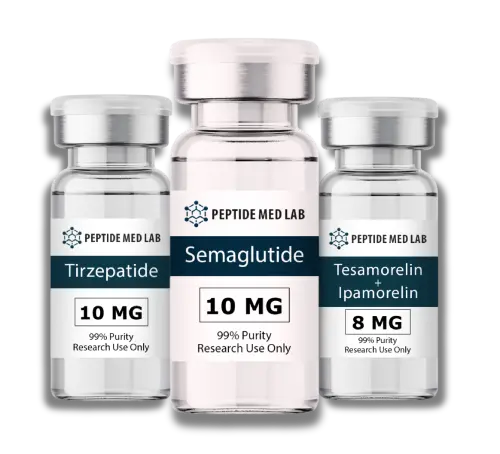Exploring Peptide Research: A Promising Path for Enhancing Neurocognitive Function
In the ever-evolving landscape of neuroscience, researchers are constantly seeking innovative approaches to improve neurocognitive function and address cognitive decline associated with aging, neurodegenerative diseases, and other conditions. One avenue of exploration that has garnered significant attention in recent years is peptide research. Peptides, short chains of amino acids, hold immense potential for modulating various aspects of brain function, offering new possibilities for enhancing memory, learning, and overall cognitive performance.
The human brain is a complex network of neurons, neurotransmitters, and synaptic connections, all working in concert to facilitate cognitive processes. However, as we age or face neurological challenges, this intricate system can falter, leading to declines in cognitive abilities. Peptides offer a promising means of intervention by targeting specific molecular pathways involved in neuronal communication, synaptic plasticity, and neuroprotection.
One area of peptide research focuses on neurotrophic peptides, which promote the growth, survival, and differentiation of neurons. These peptides have shown promise in enhancing synaptic plasticity, the brain’s ability to adapt and reorganize in response to experience. By bolstering synaptic connectivity and neuronal resilience, neurotrophic peptides hold the potential to counteract age-related cognitive decline and mitigate the effects of neurodegenerative diseases such as Alzheimer’s and Parkinson’s.
Another intriguing avenue of peptide research involves neurotransmitter modulation. Neurotransmitters, chemical messengers that facilitate communication between neurons, play a vital role in cognitive processes such as memory formation, attention, and mood regulation. Peptides designed to modulate neurotransmitter systems, such as the cholinergic or dopaminergic systems, offer a targeted approach to enhancing specific cognitive functions. For example, peptides that enhance acetylcholine release may improve memory and attention, while those that modulate dopamine signaling could boost motivation and executive function.
Furthermore, peptides with antioxidant and anti-inflammatory properties show promise for neuroprotection and neuroregeneration. Oxidative stress and neuroinflammation are implicated in the pathogenesis of various neurological disorders, contributing to neuronal damage and cognitive impairment. Peptides capable of scavenging free radicals, reducing inflammation, and promoting neuronal repair could serve as valuable therapeutic agents for preserving cognitive function and slowing disease progression.
Despite the considerable potential of peptide-based interventions for neurocognitive improvement, several challenges must be addressed. These include optimizing peptide stability, bioavailability, and blood-brain barrier penetration to ensure effective delivery to the central nervous system. Additionally, safety considerations and potential side effects warrant careful evaluation, particularly in the context of long-term use and clinical application.
Nevertheless, the burgeoning field of peptide research holds great promise for revolutionizing the landscape of cognitive enhancement and neuroprotection. As scientists continue to unravel the intricate mechanisms underlying brain function and dysfunction, peptides offer a versatile toolkit for targeted intervention and personalized therapeutics. Through interdisciplinary collaboration and rigorous scientific inquiry, we may unlock new avenues for promoting brain health and enhancing cognitive resilience across the lifespan.
In conclusion, peptide research represents a frontier of innovation in the quest for neurocognitive improvement. By harnessing the unique properties of peptides to modulate neuronal function, protect against neurodegeneration, and promote brain repair, researchers are poised to usher in a new era of cognitive enhancement and neuroprotection. As our understanding of peptide biology continues to evolve, so too will our ability to harness these molecules for the benefit of brain health and human cognition.


